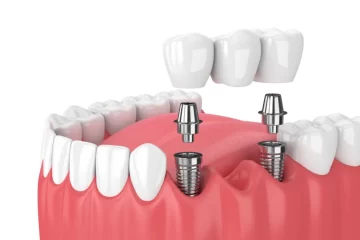Hormonal Rollercoaster: Exploring Puberty’s Impact on Fluctuations

Puberty is a transformative phase in every person’s life, marked by significant physical and emotional changes. These changes are primarily driven by hormonal fluctuations that can turn daily life into a rollercoaster ride. In this blog post, we will delve into the hormonal rollercoaster of puberty and explore its impact on fluctuating emotions and physical transformations. By understanding these changes and implementing coping strategies, individuals experiencing puberty can navigate this exciting yet challenging phase with confidence.
The Role of Hormones in Puberty
Puberty is initiated by the release of hormones from the endocrine system, signaling the body to transition from childhood to adulthood. The two primary hormones responsible for these changes are:
- Estrogen: In females, estrogen is responsible for breast development, widening of hips, growth of pubic and underarm hair, and the onset of menstruation.
- Testosterone: In males, testosterone drives the growth of body hair, deepening of the voice, muscle development, facial hair growth, and the enlargement of the testes and penis.
While these hormones play essential roles in physical development, they also influence emotions and behavior during puberty.
Emotional Impact of Hormonal Fluctuations
The influx of hormones during puberty can lead to intense emotional fluctuations. Common emotional changes experienced during this phase include:
- Mood Swings: Hormonal fluctuations can cause sudden and unpredictable shifts in mood, leading to frequent mood swings. Individuals may experience increased irritability, sadness, or anger without apparent triggers.
- Heightened Emotional Sensitivity: Hormonal changes can intensify emotional responses, making individuals more susceptible to feeling overwhelmed or overly emotional in various situations.
- Increased Self-Consciousness: As physical changes occur, adolescents may become more self-conscious about their appearance, contributing to feelings of insecurity or low self-esteem.
- Social and Identity Exploration: Puberty often brings a desire for social acceptance and the exploration of personal identity. This can lead to changes in friendships, peer groups, and interests as individuals seek to understand themselves better.
Coping Strategies for Navigating Puberty
Navigating the emotional and physical changes of puberty can be challenging, but some strategies can help individuals cope effectively:
- Open Communication: Encourage open and honest communication within the family. Providing a safe space for adolescents to express their emotions and concerns can help alleviate some of the challenges faced during puberty.
- Healthy Lifestyle: Encourage regular exercise, a balanced diet, and sufficient sleep. These healthy habits can positively impact mood and overall well-being.
- Stress Management: Teach stress management techniques such as deep breathing exercises, mindfulness, and engaging in activities that promote relaxation, such as yoga or journaling.
- Supportive Relationships: Foster supportive relationships with friends and family members who can provide understanding and empathy during this transformative phase.
- Self-Care: Encourage self-care practices such as engaging in hobbies, pursuing interests, and practicing self-compassion. Taking time for oneself can help manage stress and promote emotional well-being.
- Educate and Empower: Provide age-appropriate information about puberty to help individuals understand the physical and emotional changes they are experiencing. Knowledge empowers individuals to navigate these changes with confidence.
- Professional Guidance: If emotional difficulties persist or significantly impact daily functioning, consider seeking professional guidance from a therapist or counselor experienced in working with adolescents.
The Importance of Professional Guidance: Dermatologist Perspective in Midvale
In Midvale, dermatologists often observe firsthand the physical changes adolescents undergo during puberty, such as the onset of acne due to increased oil production. This is one of the most visible signs of hormonal changes and can significantly impact an adolescent’s self-esteem and overall emotional well-being.
Dermatologists play a crucial role in managing these skin conditions, providing treatments that can alleviate the physical discomfort and emotional distress associated with acne. Furthermore, they can educate adolescents on proper skincare routines, helping them manage the changes in their skin and boosting their confidence during this critical phase. Therefore, it’s equally important to seek guidance from healthcare professionals like dermatologists in Midvale, along with therapists and counselors, when navigating the complex journey of puberty.
Puberty is a period of significant change, both physically and emotionally, driven by hormonal fluctuations. Understanding the impact of these hormonal changes on emotions and behavior is crucial for individuals going through this phase. By implementing coping strategies such as open communication, a healthy lifestyle, stress management techniques, supportive relationships, self-care practices, empowerment through education, and seeking professional guidance when needed, individuals can navigate the hormonal rollercoaster of puberty with resilience and adaptability.










